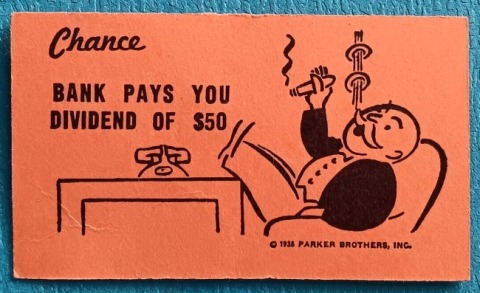
The Underground Thomist
Blog
If Conscience Is Real, How Can We Believe Foul Things?Monday, 11-06-2023
Query:In my country, lower caste Hindus feel inferior in relation to Brahmins, so that if a Brahmin were to rape the daughter of a lower caste Hindu, this would be considered a privilege. Doesn’t this cast doubt on the idea that conscience is available to all humans? It seems that humans can believe anything. Whatever is put into them by external authority, they seem to consider true. What is going on? Is their will truly not free?
Reply:One would think that since humans often both commit and comply with wrongdoing, conscience must be very weak. On the contrary, our deepest moral knowledge is incredibly strong, but we can go to great lengths in the attempt to escape it. To begin with the perpetration of wrong: The most interesting thing is not that we can tell ourselves that wrongdoing is right, but that we have to tell ourselves: Our consciences will not simply overlook what we have done. Moreover, the only way we can make wrong look right to ourselves is to take genuine moral truths and misapply them. I like to say that rationalization is the homage paid by sin to guilty knowledge. For example, it is impossible not to be ignorant of the wrong of theft, but I might rationalize the deed by telling myself that the person from whom I stole did not deserve what he had. I reason that what might look like an act of stealing was really an act of restorative justice. Similarly, we can’t not know that we must never take innocent human life, but the abortionist tries to convince himself that the unborn child wasn’t innocent, wasn’t human, or wasn’t really alive. Such excuses don’t erase the awareness of wrong; rather they suppress it by misapplication. Can the awareness of profound wrong be suppressed to the point of extinction? I don’t think so. For example, some abortionists who have written about their grisly trade admit that they have nightmares of their victims accusing them. This wouldn’t happen unless at some level, they knew that their lies were lies. Moreover, even in the case of the most hardened perpetrator of wrong, there can be such a thing as repentance and change of heart. Repentance is difficult, of course, because once we have done wrong, we “dig in” to evade the accusations of conscience – something that would hardly be necessary if conscience did not exist. But if there were no free will, repentance would not be merely difficult. It would be impossible. So far I have been speaking of those who perpetrate wrong, but conscience can also be distorted in the case of those who unjustly suffer it. Conviction of fault arouses in us an impulse to atone, to pay a price. Unfortunately, this impulse can arise not only when the fault is real, but also when it is imaginary. For example, a child who has been sexually abused may feel ashamed about the experience, telling himself that he was to blame for what happened to him. If he does, then the abuse may seem to him as though it were a deserved punishment. Or if people are constantly treated as inferiors, as in the cases you describe, they may come to think that they really are inferiors, and even that their inferiority is their fault. In this case they may believe that they deserve to be treated badly. Again, what drives submission to injustice is the misapplication of a real moral truth – in this case, the principle of desert. When people have been abused or mistreated, they often find it difficult to believe that they are made in the image of a loving God. Yet if only they can believe it, they rejoice to learn it. Moreover, although they may need help to understand that the things for which they blamed themselves were not really their fault, they experience this discovery as a liberation. So again, free will is vindicated – but its vindication comes through struggle and God’s grace. Perhaps these reflections help to explain what is going on when people seem to acquiesce in their oppression. Related:"The Revenge of Conscience"
|
Children Raised by WolvesMonday, 10-30-2023
Query:Professor, does the fact that children raised by wolves cannot function in human society show that there is no human nature?
Reply:There are said to have been a few cases of this sort of thing, but no, you are working with a flawed definition of “nature.” As you are using the term, our nature is merely our innate behavior, fixed patterns of action which do not have to be learned. If you use the term that way, then just because there are so few such patterns – just because we might learn to act all sorts of ways, or fail to learn to act in the ways expected -- it seems that we haven’t any nature. However, our nature includes much more than innate behavior. It is better to think of it as a bundle of natural potentialities, distinct to human beings, which must unfold if we are to attain our full development and live well. In a properly human environment, these potentialities can fully unfold, but in a subhuman environment, they can’t. That is why children raised by wolves cannot function in human society. If there were no human nature, then children would flourish equally whether they grew up among humans, wolves, or ants. In ant society, they would thrive as though ants; in wolf society, as though wolves; and in human society, as humans. What we find is that in an ant society, they can’t function at all. In a wolf society, they can function but not thrive, for although they may be able, say, to catch rabbits, natural human potentialities such as language, rational inference, and the desire for truth and beauty have no chance to develop in them. Only in a human society can they flourish. Another way to think of this is that the natural habitat for human beings includes not only physical features of the environment, such as food, oxygen, dry land, and a certain range of temperature, but also social features of the environment, such as parents, friendship, conversation, and worship. Aristotle and Thomas Aquinas rightly say that man is “by nature” a social and political animal – “social” meaning that we live together and cooperate, “political” meaning that we provide for justice and take thought for the common good. When they say this, their claim isn’t that we form our communities by instinct, or even that we cannot live without them. Rather they mean that these communities are our natural habitat, so that without them, we cannot live well. A good life for wolves is not a good life for us.
|
Blessing IsraelThursday, 10-26-2023
Now the Lord said to Abram, “Go from your country and your kindred and your father’s house to the land that I will show you. And I will make of you a great nation, and I will bless you, and make your name great, so that you will be a blessing. I will bless those who bless you, and him who curses you I will curse; and by you all the families of the earth shall bless themselves.” Pray for the peace of Jerusalem! “May they prosper who love you! Peace be within your walls, and security within your towers!” For my brethren and companions’ sake I will say, “Peace be within you!” For the sake of the house of the Lord our God, I will seek your good. -- Genesis 12:1-3; Psalm 122:6-9
|
My Woke ProfessorMonday, 10-23-2023
Query:Ever since one of my professors found out I didn’t share his woke opinions, I’ve been having a hard time sharing my interests with them. Suffice it to say, those who preach tolerance can be quite intolerant! Anyway, I would like to have a research plan for studying culture that they can’t dismiss as “racist” (because I believe in being colorblind instead of practicing reverse discrimination), “homophobic” (because I don’t believe all forms of sexual behavior are equivalent), “xenophobic” (because I don’t believe every way of life is equally good), or offensive in some other way, just because I don’t march to their drum.
Reply:I get this question often. What can you do? First, don’t expect to be able to share your interests with each of your professors. Be discrete. Learn with whom you can talk freely, with whom you can’t, who will respect your confidences, and who will gossip. This applies to conversations with fellow students, too. Second, choose your mentors carefully. This is important not only for those already in a graduate program, like you, but also for those who are just choosing one; they shouldn’t go just by ranking or reputation, but should research the faculty in the program first. Having to defend yourself is normal and good for you, and it isn’t necessary that all of your professors be sympathetic to your point of view. However, you need to find at least one or two of the faculty who will be sufficiently likeminded to help you with your projects instead of tearing you down. Naturally, you should expect to be criticized for laziness or sloppy reasoning! But you shouldn’t have to do daily battle just because you don’t hold woke views. Third, although you should try to get along with everyone, you should reconcile yourself to the fact that with some people this is impossible. Avoid them. When you have to deal with them, find things to talk about that interest them, not you, and do your work so impeccably that they find it difficult to criticize. But of course this is good advice even if you aren’t dealing with hostile critics! Fourth, remember that although you must never be complicit with what is unconscionable, there are all sorts of interesting questions about race, family, and culture which don’t even raise issues about reverse discrimination, sexual disorder, or the evaluation of different ways of life. If – as I suspect – you don’t want to study one of the safe questions, but one which is inescapably risky, more power to you! As G.K. Chesterton said, only living things can go against the stream. But find ways to frame your question which intrigue even those whose views are radically different than yours. To do this, you will have to understand them as well as you possibly can. Fifth, plan for the future. One of the most brilliant graduate students I’ve taught framed his research question in the way I’ve just urged, and did his work so well that he disarmed his critics, whose reasons for being interested in his project were quite different than his own. He used his doctoral research to lay the groundwork ahead of time for his next project after getting his PhD. It was much more controversial – but by that time, he had strengthened his position. Finally, have fun. You’re still a young man. Young men like to fight. Learn which things are worth fighting for, and fight prudently: Not with your fists, but with your mind.
|
No Such Thing as Virtue?Monday, 10-16-2023
The Good Samaritan is a model of virtue because he gave assistance to a stranger who sorely needed it, at significant cost to himself, after several who might have been thought to have a greater duty to help passed the sufferer by. But what if there is no such thing as virtue? What if the Samaritan wasn’t really good? What if the he merely happened to relieve suffering that time, but another time might have turned a blind eye to it? What if it all depends on the occasion? Maybe even Caligula acted kindly at times. Maybe even Mother Theresa sometimes didn’t. That’s what I hear occasionally from students who are learning of the classical doctrine of the virtues for the first time. They tell me that there is no such thing as stable moral character. Virtue is non-existent, like ghosts and unicorns. How do they know? Because that’s what some of their psychology professors tell them. After a certain number of students told me this, I did a little digging. Yes, some psychologists really do propound such a theory, and it’s a convenient excuse if one is considering kicking the dog, cheating on the test, or flipping off the driver in the next lane. But there is much less to it than meets the eye. The experiments on which these psychologists base their hypothesis are actually somewhat interesting, but what they show is another question. In the first and most famous such experiment, by John M. Darley and C. Daniel Batson, seminary students were recruited under the pretext of having them give talks on assigned topics – some on seminary employment, others on the Good Samaritan. The researchers had the students fill out personality questionnaires covering their views and attitudes toward religion. At a certain point, under another pretext, the students were asked to walk to a different building. Some were told to hurry; some weren’t. On the way, each student passed a confederate of the experimenters who was slumped in an alleyway, moaned, and gave a few coughs. The question was: Would the passerby stop to give assistance to the supposed sufferer? Of the seminarians who were not in a hurry, most stopped. Some, in fact, were so eager to help that the person who was feigning distress had a difficult time getting them to leave before another experimental subject came along. On the other hand, of the seminarians who were in a hurry, most did not stop, and there was very little correlation between whether they stopped and what they had said in their questionnaires. From this finding, many psychologists have concluded that morally irrelevant situational factors like being in a hurry matter far more than supposed virtue in determining how people will behave. Ergo, stable moral character is a myth. When I returned to the original experiment, I was surprised to find that Darley and Batson did not actually draw such a silly conclusion. Their discussion of what their experiment meant was much more thoughtful, and rightly so, for everyday life constantly reminds us of the importance of differences in character. One man is a good husband, another is a louse. I can loan my car to my daughter-in-law, but I had better not loan money to my brother-in-law. The hypothesis that there is no such thing as stable moral character is also contradicted by the experience of banks, insurance companies, and law enforcement. That’s why we have credit records, actuarial scores, and rap sheets. We therefore have excellent prima facie reason to that there really is such a thing as stable moral character, and that it is very important. So what is wrong with the no-such-thing-as-virtue school of thinking? Why shouldn’t such experiments be taken as showing that stable character is nonexistent? The two original experimenters themselves give the first reason for thinking so. Post-experiment interviews suggested to them that some of the seminary students may have been torn between stopping to help the fellow in the alley, and continuing on their way to keep their promise to help the experimenter. “And this is often true of people in a hurry,” they write. “Conflict, rather than callousness, can explain their failure to stop.” But the literature on such experiments not only tends to ignore this point, but cexhibits other blind spots too. The first thing it overlooks is that although being in a hurry made a difference, it didn’t make all the difference. A good many seminarians in a hurry helped; a good many not in a hurry didn’t. From a failure to find a complete explanation of the difference in behavior, it doesn’t follow that the complete explanation lies in circumstances rather than moral character. The second thing it overlooks is that it’s very hard to measure virtue independently of what people actually do. For example, being in seminary is hardly evidential; on one occasion a student asked me for a recommendation to seminary so that he could become a minister just because his dad, a Unitarian pastor, made a pretty good income. (The student’s other top career choice was restoring vintage cars.) Responses to the sorts of personality questionnaires that psychologists ordinarily use aren’t much help either. In the original Darley and Batson study, the highest correlation was between the behavior of the seminarians and whether they viewed religion as a “quest” – but what does that mean? Third, virtue comes in degrees. Most of us are pretty flawed, and are sorely challenged by our temptations. We win some, we lose some. Each time someone wins a match, it is a little easier to prevail in the next one. Each time he loses, it’s a little harder. So the fact that passersby often fail to help someone they really ought to help doesn’t mean that there is no such thing as virtue, but, at most, that not many of them have it to the very highest degree. Fourth, “virtue vs. circumstances” is a false alternative, because even highly virtuous people don’t always act the same way – and they shouldn’t. A perfectly virtuous person will always act virtuously, but the virtuous course of action is not always the same. For example, the virtue of generosity does not always require giving everyone who asks for something what he wants. It depends on circumstances. Granted, the proponents of the “no such thing as virtue” theory do take a stab at it at the fourth problem. As we saw, they argue that the differences in behavior which experimental subjects exhibit depend not just on circumstances, but on morally irrelevant circumstances, such as whether they are in a hurry. To say this we have to overlook their admission that this particular circumstance may not have been morally irrelevant after all. But even aside from that problem, let’s not be in a hurry to draw conclusions. Consider that fellow in the alleyway. Were the passing seminarians convinced that his distress was genuine, or did they wonder whether he was faking? After all, some people do feign distress, whether for predatory or non-predatory reasons. Besides, the fellow was faking, and it is unreasonable to assume that passersby wouldn’t sense something “off.” It isn’t clear whether the post-experiment interviews investigated this possibility. What kind of distress did the passersby think the fellow in the alleyway was in? If he had fallen and banged his head, then he could probably be helped. If he was drunk or desperate for a fix, then they probably didn’t have means to help him. If he was agitated because he was high on PCP, it would be dangerous to try. In many cities these days, authorities don’t even respond to 911 calls about people acting distressed. Sometimes not responding is policy; sometimes they are just overworked. Even people who want to be helpful can’t help everyone. It would be impossible. We have to make choices. Did the passersby even notice the fellow? Several of the seminarians obviously did – they stepped over him! Most of them mentioned to the researchers that they wondered whether he may have needed help. In many cases, though, it seems that this thought occurred to them only afterward, not at the time. Being oblivious when hurrying is surely a flaw, but it is a different flaw than noticing and not giving a damn. Not to let the passersby too easily off the hook, suppose we accept the judgments of no-such-thing-as-virtue thinkers concerning whether they did the moral thing. This merely exposes a fifth problem: Where are such thinkers getting these judgments? This question is important because according to the classical view, every other virtue hinges on the virtue of practical wisdom, which involves judging well. For example, I may have a perfect readiness to be generous – and such a disposition is nothing to take lightly – yet I may be a poor judge of who stands in need of my generosity. Now plainly, the psychologists who say there is no such thing as virtue are confident in the stability of their own moral wisdom. Otherwise, how could they presume to offer any judgments whatsoever about what is morally relevant or irrelevant? But if their entire methodology is predicated upon their having the stable virtue of moral wisdom, then how can they conclude that there is no such thing as stable moral character?
Reference:John M. Darley and C. Daniel Batson, “From Jerusalem to Jericho: A study of Situational and Dispositional Variables in Helping Behavior.” Journal of Personality and Social Psychology 27:1 (1973), pp. 100-108. Related:Commentary on Thomas Aquinas’s Virtue Ethics
|
InsularityMonday, 10-09-2023
What scholars think about the world at large tends to come not from the world at large, but from other scholars. Without much experience of ordinary people, many of them take for granted that ordinary folk are bigots, especially in certain parts of the country. It amazes me how hard it is to crack the shell that protects such opinions from reality. At a faculty Christmas party a few years ago, a colleague was intrigued to learn that my wife and I spend part of every summer in a poor section of the Appalachians. Why on earth retreat to a place like that? He was a nice guy – most of my colleagues are nice people -- and he understood the pleasure of visiting family and old friends. He also liked vacations. But he definitely didn’t understand the refreshment of getting out of the incestuous university culture into a different kind of world with different kinds of people. So tell me how it’s different, he asked, and I obliged. One of the points I emphasized was how important extended family is in eastern Kentucky, by contrast with a high-tech, high-mobility burg like Austin. Having grown up, unlike my wife, in an ultra-nuclear family, I’m fascinated by close family ties. Everyone up in the hollers knows his relatives out to double second cousins once removed. When introductions are made, the first thing people want to know is “Who are your people?” Instantly my colleague told me, yes, he had been disturbed to see a small racist demonstration at a highway intersection when he was driving through a southeastern town. What? Puzzled by what seemed a change of subject, I explained that white supremacist organizations are pretty much unknown where we go in the summer. I understood that he viewed them as central to southern culture. What puzzled me was why he seemed to think that I did too. Finally I realized that when I had used the term “clan,” meaning extended family, he had assumed that I was talking about the KKK. Never mind the context. After all, man, the south! What else could I have been talking about? (Besides, wouldn’t I have had all the same opinions he did?) Easy mistake, easily correctible. Or so I thought. Quickly I explained that I hadn’t meant “Klan,” with a big K, but “clan,” with a little “c.” Relatives, you know. Your family. Your kin. But it was as though he couldn’t hear me. Extended family didn’t have a slot in his fixed view of the southeastern United States. White supremacy did. According to a certain common view, higher education makes people more broad-minded and open to new information. But in their own way, universities can be narrower than any village. I would say that to live in that world is a lot like living up a holler, but a holler has a lot more variety.
|
The Real Problem with the SuperrichSunday, 10-01-2023
Other than from sheer jealousy, why should anyone object to some people having far more wealth than others? The spiritual argument is that the superrich are vulnerable to the grave danger of relying on wealth rather than God for their security and beatitude. “It is easier for a camel to go through the eye of a needle than for a rich man to enter the kingdom of God,” says Christ. However, although the passage provides an excellent reason for warning the ultra-wealthy, it doesn’t provide a reason for objecting to them. Coercion should be used only to enforce the common good, not the private good. The economic argument is that by having all that wealth, the ultra-wealthy are taking wealth away from the rest of us. “The rich get richer, and the poor get poorer.” No, a competitive economy is not a zero-sum game. Wealth employed in productive enterprises increases the wealth of those less favored, for instance by generating jobs. The social argument is that disparities of wealth produce such envy that the society is torn apart. In itself, however, this isn’t so much an argument against disparities of wealth as an argument against flaunting them. The ethical argument is that justice requires equality. Not so fast. Justice requires treating people who are equal in relevant respects equally; for example, we shouldn’t treat equally qualified job applicants differently because of race. But justice doesn’t require that everyone have the same stuff. The political argument is that wealth is a means to political power, and those who crave wealth tend to be the sorts of persons who crave power too. You can run an oligarchy if some people are superrich – and some oligarchies are better than others -- but if you try to run a republic that way, you will lose it. The first four arguments are weak, but I can’t think of a convincing retort to the political argument. Not only is it the strongest, but it alters the force of the others. As to the spiritual argument: If superwealth produces dangerous concentrations of power, then the superrich are vulnerable not only to temptations to hurt themselves, but also to temptations to hurt others. The goods at risk are no longer merely private. As to the economic argument: If superwealth makes some unusually powerful, then they will almost certainly use their power to give themselves non-competitive advantages, such as government subsidies. A competitive market tends to increase everyone’s wealth, but a rigged market may make many poorer. As to the social argument: Although it may be possible to conceal extreme disparities of wealth, it is hard to blame have-nots for resenting them if the harm they suffer from them is real, rather than imaginary and churlish. As to the ethical argument: Justice doesn’t require that everyone have the same stuff, but it does require a reasonably close approximation of a level playing floor. If extreme wealth can radically tip the floor, we have a problem. Granted the dangers of great concentrations of wealth in private hands, what can be done about it? The problem is that most of the conceivable cures are even worse than the disease. Progressives propose taxing all that wealth away (except, of course, from their allies), and instituting a “managed” economy. Many of the superrich even support progressive schemes: Wall Street is mostly Democrat these days. It isn’t difficult to see why, for if the progressive program were carried out thoroughly, it would not destroy concentrations of power, but only replace private concentrations of power with the concentration of power in the government. Those who expect to gain from government patronage welcome the prospect. The present oligarchy, despite its flaws, tends to generate some checks on governmental power. The new kind of oligarchy would be a runaway car with nothing at all standing between the government at the top of the hill and the citizen at the bottom. What about conservatives? Some simply deny the disease. This is obviously unsatisfactory. Others seem resigned to living with it. Since it is a progressive disorder – no pun intended – this is not realistic either. Following the present trajectory, the political order will not stand still, but will advance further into oligarchy. Years ago as a young scholar, when I first began studying political theory, I was impatient with Aristotle, who, after saying that oligarchy was one of the “perverted” forms of government, asked not how to avoid it, but how to ameliorate it. I am not so impatient with him now. Political theory does not concern itself with the impossible. On the other hand, perhaps the pragmatic suggestion of a mixed and balanced form of polity has not yet run its course. If concentrations of power cannot be avoided, maybe the best thing is to encourage countervailing concentrations, so that each kind of power is in competition with each of the others. Although this is far from a new idea, it is much more difficult to put into practice than one might think. For instance, not so long ago, many people viewed labor and capital as countervailing forces which would keep each other from doing mischief. Since then, we have seen that big corporations and big industrial unions can work together to obtain governmental patronage and undermine competition. Much the same sort of thing happens inside government itself. The Founders expected the branches of government use their powers to curb each other, but if two branches, or two chambers of the legislature, can both become more powerful by acting in concert, they will do so. So much for checks and balances. Do you think it’s hard enough to build a house of sticks? Try to build it when the sticks are alive, squirming, growing, and jostling for position. I don’t say it’s impossible, but the work is never done.
|






